The Role of Wallets in Cryptocurrency Investment Strategies
In the ever-evolving world of cryptocurrency, wallets play a critical role in managing your digital assets. Imagine your cryptocurrency as a treasure chest filled with precious gems; without a secure chest, those gems are vulnerable to theft and loss. Cryptocurrency wallets are the guardians of your digital wealth, providing a safe haven for your investments. They not only allow you to store your cryptocurrencies securely but also enable you to send, receive, and manage your assets effectively.
Understanding the importance of these wallets is essential for anyone looking to venture into the realm of cryptocurrency. Just like you wouldn't keep your cash under a mattress, you shouldn't store your digital assets in an unsecured manner. Wallets come in various forms, each serving different purposes and offering unique features that cater to a range of investment strategies. Whether you are a casual investor or a serious trader, knowing how to choose the right wallet can significantly impact your overall investment experience.
Furthermore, the security features of wallets are paramount. With the rise of cyber threats, ensuring that your assets are well-protected is more important than ever. In this article, we will explore the different types of wallets available, their functionalities, and how they fit into your investment strategy. By the end, you will have a comprehensive understanding of how to maximize your returns while minimizing risks through effective wallet management.
Cryptocurrency wallets are essential tools for storing digital assets securely. They function much like a bank account, allowing users to hold their cryptocurrencies and conduct transactions. Unlike traditional wallets that hold physical currency, cryptocurrency wallets store your assets in the form of private and public keys. The public key is akin to your bank account number, which you share with others to receive funds, while the private key is like your PIN—only you should have access to it.
These wallets can be categorized into two main types: hot wallets and cold wallets. Hot wallets are connected to the internet, making them more convenient for daily transactions but also more susceptible to hacks. Cold wallets, on the other hand, are offline storage solutions that offer enhanced security. Understanding the differences between these wallet types is crucial for developing a robust cryptocurrency investment strategy.
There are various types of cryptocurrency wallets, each with its own set of features, advantages, and disadvantages. Choosing the right wallet depends on your investment style, the amount of cryptocurrency you hold, and your personal security preferences. Below is a brief overview of the primary types of wallets:
- Hardware Wallets: These are physical devices that store your cryptocurrencies offline, providing enhanced security against hacks.
- Software Wallets: These applications allow users to manage their cryptocurrencies easily and are available for both desktop and mobile devices.
- Paper Wallets: A form of cold storage where your keys are printed on paper, making them immune to online threats but vulnerable to physical damage.
Hardware wallets are the go-to choice for serious investors seeking to protect their digital assets. By storing cryptocurrencies offline, they offer a level of security that software wallets simply can't match. Think of hardware wallets as a safe deposit box in a bank—it's much harder for thieves to access your valuables when they're locked away securely.
Some of the most popular hardware wallets on the market include:
| Wallet Name | Price | Features |
|---|---|---|
| Ledger Nano S | $59 | Compact, supports multiple cryptocurrencies, secure chip technology. |
| Trezor Model T | $219 | Touchscreen, supports a wide range of cryptocurrencies, open-source software. |
When it comes to security, hardware wallets stand out due to their robust features. They often come with:
- Encryption: Data is encrypted, making it nearly impossible for unauthorized users to access your funds.
- Backup Options: Most hardware wallets allow you to create backups, ensuring you can recover your assets if the device is lost or damaged.
Software wallets, on the other hand, offer convenience and ease of use. They are applications that can be installed on your computer or smartphone, allowing you to manage your cryptocurrencies on the go. While they are more user-friendly, they do come with potential security risks, especially if your device is compromised.
Ensuring the security of your cryptocurrency wallets is crucial for investors. Following best practices can help safeguard your digital assets against theft and loss. Here are some essential practices:
Implementing two-factor authentication (2FA) adds an extra layer of security to your wallets. This method requires not only your password but also a second form of verification, such as a code sent to your mobile device. It's like having a double lock on your front door—just because someone has a key doesn’t mean they can easily get in.
Regularly backing up wallet data is essential to prevent loss. It's advisable to create backups of your wallet and store them in multiple secure locations. This way, if you lose access to your wallet, you can still recover your assets. Think of it as having a spare key hidden away in case you get locked out of your house.
Q: What is a cryptocurrency wallet?
A: A cryptocurrency wallet is a digital tool that allows users to store, send, and receive cryptocurrencies securely.
Q: What is the difference between hot and cold wallets?
A: Hot wallets are connected to the internet and are more convenient for transactions, while cold wallets are offline and offer enhanced security.
Q: How can I ensure the security of my wallet?
A: Implement two-factor authentication, regularly back up your wallet data, and consider using a hardware wallet for added security.

Understanding Cryptocurrency Wallets
Cryptocurrency wallets are essential tools for storing digital assets securely. Think of them as your digital vaults, where you keep your cryptocurrencies safe from prying eyes and malicious actors. But how do they work? Well, wallets don't actually store your cryptocurrencies in the traditional sense. Instead, they hold the private keys that give you access to your digital assets on the blockchain. This means that whenever you want to send or receive cryptocurrencies, your wallet uses these keys to interact with the blockchain network.
The importance of wallets in the cryptocurrency ecosystem cannot be overstated. Without a wallet, your ability to manage your digital assets would be severely limited. Just like you wouldn’t walk around with a suitcase full of cash, you wouldn’t want to leave your cryptocurrencies unprotected in online exchanges. Wallets provide a layer of security and control that is crucial for any investor. They allow you to send, receive, and keep track of your investments effectively.
There are several types of wallets available, each catering to different needs and preferences. Generally, wallets can be categorized into two main types: hot wallets and cold wallets. Hot wallets are connected to the internet and are great for day-to-day transactions, while cold wallets are offline and offer superior security for long-term storage.
In the world of cryptocurrency, understanding the various types of wallets and their functionalities can significantly impact your investment strategy. For instance, if you're an active trader, a hot wallet might be more suitable for you due to its convenience. On the other hand, if you're looking to hold your assets for an extended period, a cold wallet could be your best bet for security.
To clarify, let's break down the key differences between hot and cold wallets in the table below:
| Type of Wallet | Connection | Security Level | Best for |
|---|---|---|---|
| Hot Wallet | Online | Lower | Frequent transactions |
| Cold Wallet | Offline | Higher | Long-term storage |
Ultimately, the choice of wallet comes down to your individual needs and investment strategy. Whether you're a seasoned trader or a newbie just dipping your toes into the cryptocurrency waters, understanding how wallets work and their critical role in managing your investments is essential. By choosing the right wallet, you can enhance your security and ensure that your digital assets are well-protected.
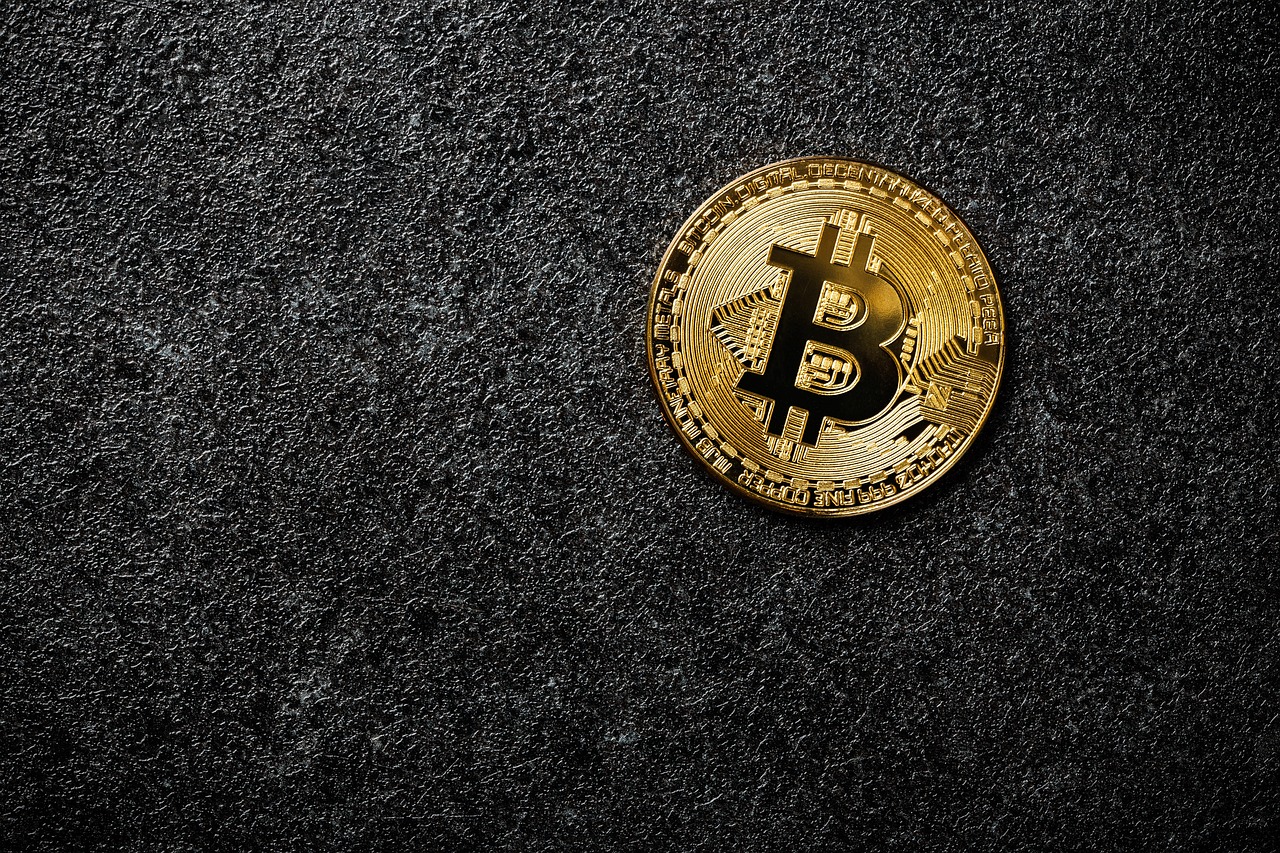
Types of Wallets
When diving into the world of cryptocurrency, understanding the different types of wallets is crucial for managing your digital assets effectively. Just like you wouldn't keep your cash in your back pocket while walking through a crowded market, you need to choose the right wallet to protect your investments. Cryptocurrency wallets come in various forms, each designed to meet specific needs and preferences of users. The primary categories include hardware wallets, software wallets, and paper wallets. Each type has its own unique features, benefits, and drawbacks, which can significantly impact your overall investment strategy.
Hardware wallets are often considered the gold standard in terms of security. These physical devices store your cryptocurrencies offline, making them less vulnerable to hacks and online threats. Think of them as a safe deposit box for your digital assets. They are perfect for long-term investors who prioritize security over convenience. On the flip side, they can be a bit more challenging to set up and use, especially for beginners.
On the other hand, we have software wallets, which are applications that allow users to manage their cryptocurrencies with ease. They come in the form of desktop applications, mobile apps, or even web-based platforms. Software wallets are convenient and user-friendly, making them ideal for everyday transactions. However, they are connected to the internet, which means they are more susceptible to hacking attempts. It's like carrying cash in your wallet while strolling through a busy street—convenient, but you have to be cautious.
Lastly, there's the paper wallet option, which is a more old-school method of storing cryptocurrencies. A paper wallet is essentially a physical printout of your public and private keys. This method is highly secure as it is entirely offline, but it comes with its own set of challenges. If you misplace or damage your paper wallet, you could lose access to your funds forever. It's like having a treasure map—if you lose it, the treasure is gone!
In summary, choosing the right type of wallet depends on your unique needs as an investor. Here’s a quick comparison of the three types:
| Type of Wallet | Security Level | Ease of Use | Best For |
|---|---|---|---|
| Hardware Wallet | High | Moderate | Long-term Investors |
| Software Wallet | Moderate | High | Frequent Traders |
| Paper Wallet | Very High | Low | Security-Conscious Users |
Ultimately, the choice of wallet will depend on how you plan to use your cryptocurrencies. Whether you’re a long-term holder or a day trader, understanding these wallet types will help you make informed decisions and keep your investments safe.

Hardware Wallets
When it comes to the world of cryptocurrency, security is paramount. This is where come into play. These are physical devices designed to store your digital assets offline, providing a fortress-like protection against potential online threats. Imagine keeping your valuable possessions in a safe rather than leaving them out in the open; that’s the essence of a hardware wallet. Unlike software wallets, which are often connected to the internet and can be vulnerable to hacks, hardware wallets store your keys in a secure environment, safe from prying eyes.
One of the biggest advantages of hardware wallets is their ability to isolate your private keys from the internet. This means that even if your computer is compromised, your cryptocurrencies remain safe. Think of it as having a bank vault in your home – no matter what happens outside, your valuables are secure. Popular hardware wallets like the Ledger Nano S and Trezor Model T have gained a reputation for their robust security features, user-friendly interfaces, and compatibility with a wide range of cryptocurrencies.
In addition to security, hardware wallets also offer features that cater to both novice and experienced investors. Many of these wallets come with intuitive interfaces that make managing your assets straightforward. For instance, with a simple button press, you can confirm transactions directly on the device, which adds an extra layer of verification. This is crucial because it helps prevent unauthorized transactions that could occur if your device were to be compromised.
However, it's essential to note that while hardware wallets provide exceptional security, they are not entirely foolproof. Users must still exercise caution. For example, purchasing a hardware wallet from a third-party seller can be risky, as it may have been tampered with. Always buy directly from the manufacturer or authorized retailers. Additionally, remember to keep your recovery phrase secure; losing it could mean losing access to your assets forever.
To summarize, hardware wallets are an excellent choice for anyone serious about cryptocurrency investment. They combine security, user-friendliness, and peace of mind, making them a staple in the toolkit of any savvy investor. As you explore your options, consider your specific needs and preferences. The right hardware wallet can be a game-changer in your investment strategy.
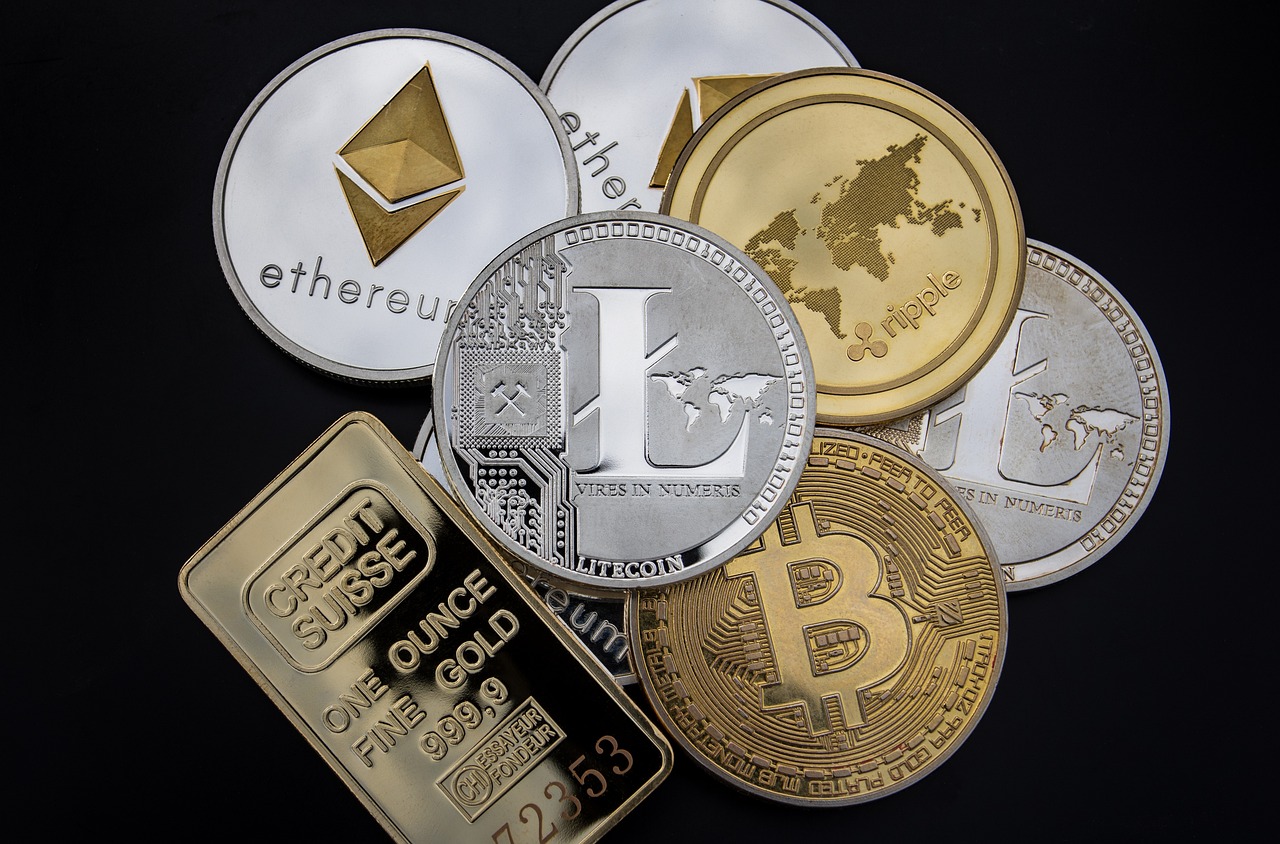
Top Hardware Wallets
When it comes to securing your cryptocurrency investments, hardware wallets stand out as the safest option available. These physical devices are designed to keep your digital assets offline, making them nearly impervious to online threats. Let’s dive into some of the top hardware wallets on the market today, exploring their features, pricing, and what users have to say about their experiences.
One of the leading names in the hardware wallet space is the Ledger Nano X. This wallet offers Bluetooth connectivity, allowing users to manage their cryptocurrencies on the go through a mobile app. With support for over 1,800 different cryptocurrencies, the Ledger Nano X is a versatile choice for both beginners and seasoned investors. Priced around $149, it provides a robust combination of security and convenience.
Another popular option is the Trezor Model T, which is known for its user-friendly touchscreen interface. This wallet supports a wide variety of cryptocurrencies and provides advanced security features, including password management and two-factor authentication. Retailing at approximately $219, the Trezor Model T is slightly more expensive but is often praised for its intuitive design and comprehensive security measures.
For those looking for a more budget-friendly option, the Ledger Nano S is a fantastic choice. Priced at about $59, it offers a solid level of security for those just starting in the crypto space. While it lacks some of the advanced features of its more expensive counterparts, the Ledger Nano S supports a multitude of cryptocurrencies and is a reliable option for storing digital assets safely.
To help you visualize these options, here’s a quick comparison table that outlines the key features of these top hardware wallets:
| Wallet | Price | Supported Cryptocurrencies | Key Features |
|---|---|---|---|
| Ledger Nano X | $149 | 1,800+ | Bluetooth, mobile app support |
| Trezor Model T | $219 | 1,600+ | Touchscreen, password manager |
| Ledger Nano S | $59 | 1,000+ | Compact design, affordable |
In addition to these wallets, there are other options like the SafePal S1 and BitBox02 that cater to different user preferences. Each wallet offers unique features that can enhance your cryptocurrency management experience. It’s crucial to consider your specific needs, such as the number of currencies you plan to store and your comfort level with technology, when selecting a hardware wallet.
In conclusion, investing in a hardware wallet is a wise decision for anyone serious about protecting their cryptocurrency assets. With options ranging from highly secure and feature-rich devices to budget-friendly alternatives, there’s a hardware wallet for everyone. Remember, the right wallet can make a significant difference in your investment journey, providing peace of mind and security.

Security Features
When it comes to managing your cryptocurrency investments, the of your wallet are paramount. After all, you wouldn’t keep your life savings under a mattress, right? Similarly, you need to ensure that your digital assets are protected from potential threats. Hardware wallets, which are considered the gold standard in security, offer several critical features that significantly reduce the risk of theft or loss.
One of the standout security features of hardware wallets is their offline storage capability. Unlike software wallets that are connected to the internet, hardware wallets store your private keys offline, making them nearly impervious to hacking attempts. Think of it as keeping your valuables in a safe rather than leaving them in a visible drawer. This offline nature is a game-changer, as it adds a robust layer of protection against cybercriminals.
Another essential feature is the encryption technology used in hardware wallets. These devices utilize advanced encryption algorithms to secure your data, ensuring that even if someone gains physical access to the wallet, they cannot easily extract your private keys. It’s like having a vault with a complex lock; without the right combination, it remains secure. Additionally, many hardware wallets come with a secure element chip that further enhances encryption and protects against physical tampering.
Moreover, multi-signature support is a feature that allows multiple keys to be required to authorize a transaction. This means that even if one key is compromised, your assets remain safe. It’s akin to requiring multiple signatures for a bank transaction; it adds an extra layer of security that can be crucial for serious investors managing substantial amounts of cryptocurrency.
Lastly, a key feature to highlight is the recovery seed phrase. When you set up a hardware wallet, you are given a series of words that serve as a backup to access your funds. It’s like having a secret map to your treasure. If your wallet is lost or damaged, this seed phrase allows you to recover your assets securely. However, it’s essential to keep this phrase safe and private, as anyone with access to it can control your funds.
In summary, the security features of hardware wallets—such as offline storage, encryption technology, multi-signature support, and recovery seed phrases—are designed to protect your cryptocurrency investments from a myriad of threats. By understanding and utilizing these features, you can significantly enhance the safety of your digital assets and invest with greater peace of mind.
- What is the most secure type of cryptocurrency wallet?
Hardware wallets are generally considered the most secure option due to their offline storage and advanced security features. - Can I recover my funds if I lose my hardware wallet?
Yes, as long as you have your recovery seed phrase, you can recover your funds even if your hardware wallet is lost or damaged. - Are software wallets safe?
While software wallets are convenient, they are more vulnerable to hacks compared to hardware wallets. Using strong passwords and enabling two-factor authentication can help improve their security.
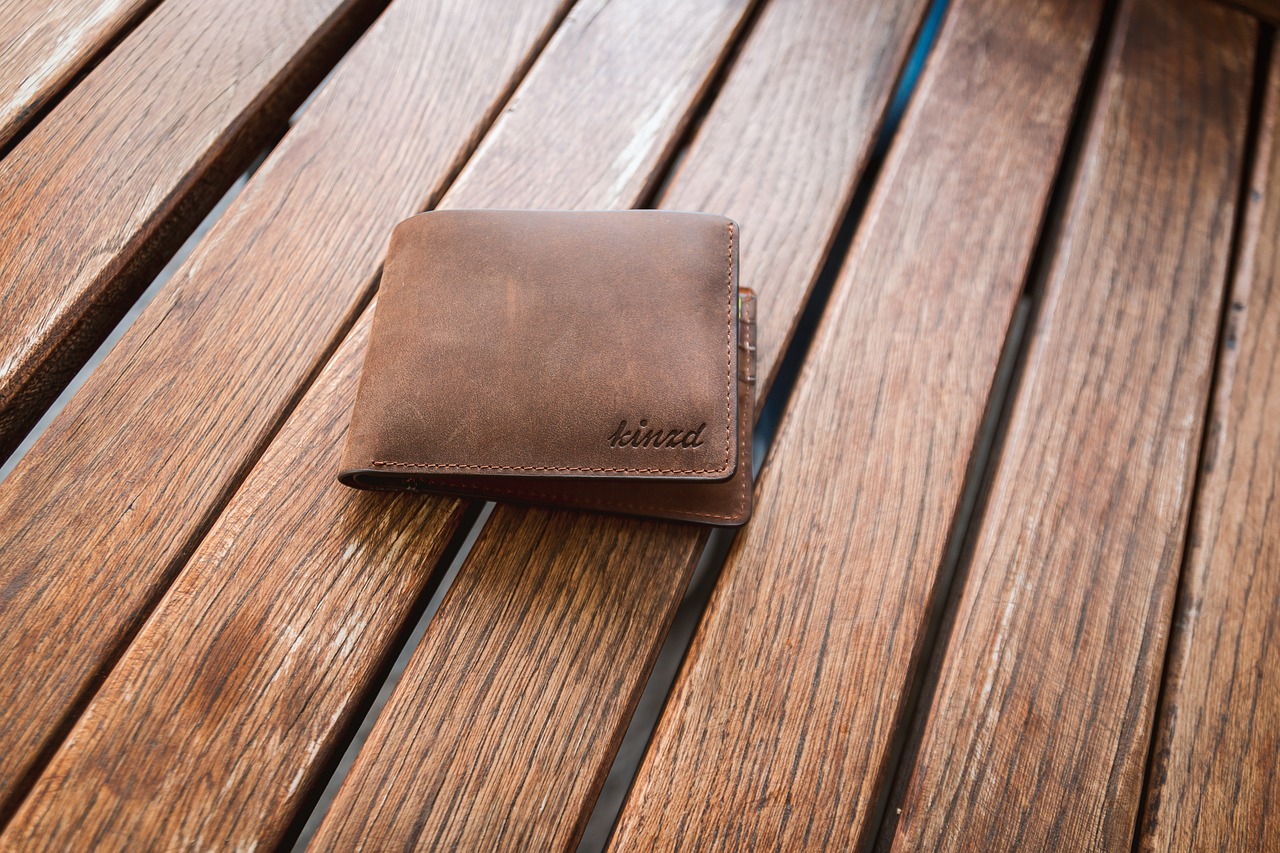
Software Wallets
When it comes to managing your cryptocurrency, are like the Swiss Army knives of the digital asset world. These applications allow users to easily send, receive, and store their cryptocurrencies all in one place. They come in various forms, including desktop applications, mobile apps, and even web-based platforms. What makes them particularly appealing is their convenience; you can access your funds from anywhere, as long as you have an internet connection. However, this convenience comes with its own set of challenges and risks, especially regarding security.
One of the most significant advantages of software wallets is their user-friendly interfaces, which make them ideal for both beginners and seasoned investors. For instance, a mobile wallet allows you to make transactions on the go, while a desktop wallet might offer more advanced features for managing multiple cryptocurrencies. However, it's crucial to understand that while software wallets are incredibly convenient, they are also more susceptible to hacking and malware attacks compared to their hardware counterparts. This is primarily because they are connected to the internet, making them a target for cybercriminals.
To help you navigate the world of software wallets, here are some common types you might encounter:
- Desktop Wallets: Installed on your computer, these wallets offer a good balance of security and usability. They allow you to have full control over your private keys.
- Mobile Wallets: Perfect for everyday transactions, these wallets are handy for making payments at stores or transferring funds quickly. However, they can be vulnerable if your phone gets lost or hacked.
- Web Wallets: Accessible through your browser, these wallets are great for quick access but often lack robust security features. It's essential to choose a reputable provider to mitigate risks.
While software wallets are a fantastic option for managing your investments, it's crucial to practice good security hygiene. Always ensure that you are downloading wallets from official sources and keep your software updated to protect against vulnerabilities. Additionally, consider using strong passwords and enabling features like two-factor authentication (2FA) whenever possible. This extra layer of security can make a world of difference in safeguarding your assets.
In summary, software wallets are a practical choice for cryptocurrency management, offering a blend of convenience and functionality. However, as with any financial tool, understanding their strengths and weaknesses is key to making informed decisions. The right software wallet can enhance your investment strategy, but always remember to prioritize security to protect your digital wealth.
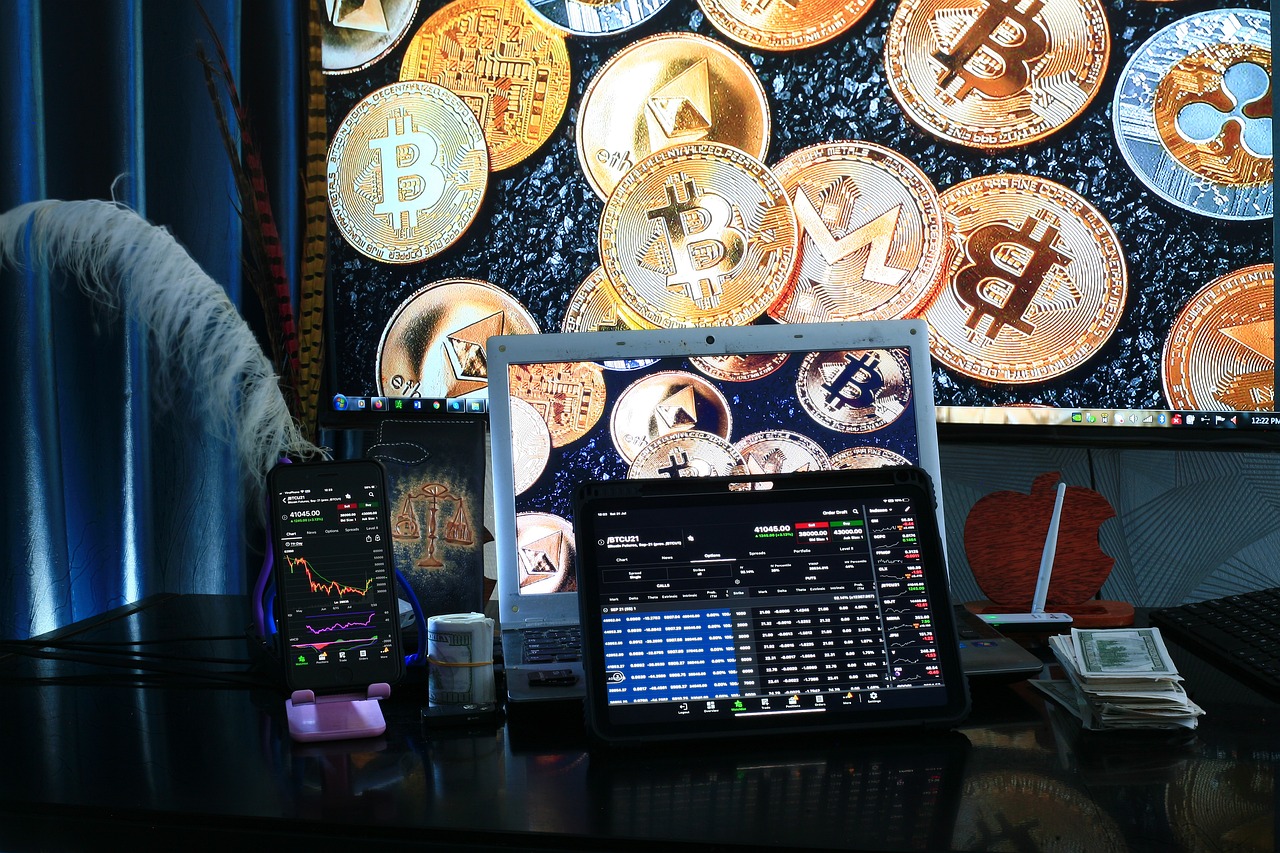
Best Practices for Wallet Security
In the fast-paced world of cryptocurrency, ensuring the security of your wallet is not just a good idea—it's a necessity. With hackers constantly on the prowl and scams lurking around every corner, safeguarding your digital assets should be your top priority. So, how can you make sure that your investments remain secure? Here are some best practices that every cryptocurrency investor should follow.
First and foremost, two-factor authentication (2FA) is your best friend. This additional layer of security requires not only your password but also a second form of verification, typically a code sent to your mobile device. Imagine it as a double lock on your door—while a single lock might keep out casual intruders, a double lock makes it significantly harder for anyone to break in. By enabling 2FA, you drastically reduce the risk of unauthorized access to your wallet.
Another critical practice is to make regular backups of your wallet data. Just like you wouldn't want to lose your house keys, you don't want to lose access to your cryptocurrency. Backing up your wallet ensures that even if your device is lost or damaged, your assets are still safe and sound. You can create backups by exporting your wallet's private keys or seed phrases and storing them in a secure location. It's advisable to keep these backups in multiple places—think of it as having spare keys hidden in different spots around your home.
Security software is also an essential component of wallet safety. Using reputable antivirus and anti-malware programs can help protect your devices from malicious attacks. Many investors overlook this aspect, but having a solid defense against software threats is just as important as securing your wallet itself. Always keep your software up to date, as updates often include vital security patches.
Moreover, be cautious with phishing scams. These scams often come in the form of emails or messages that appear legitimate but are designed to steal your login credentials. Always double-check the URLs of websites you visit and avoid clicking on suspicious links. It's like receiving a letter from a "bank" asking for your account information—always verify before you share anything.
To further enhance your security, consider using hardware wallets for long-term storage of your cryptocurrencies. While software wallets are convenient for daily transactions, hardware wallets provide a level of security that is hard to beat. They store your private keys offline, making it nearly impossible for hackers to access your funds. Think of it as storing your cash in a safe rather than keeping it in your wallet; it’s a much safer option for long-term holdings.
Finally, always stay informed about the latest security trends and practices in the cryptocurrency space. The digital landscape is ever-evolving, and what worked yesterday may not be sufficient today. Joining online forums or following reputable cryptocurrency news sources can help you stay ahead of potential threats.
To further assist you in your journey toward securing your cryptocurrency investments, here are some frequently asked questions:
- What is two-factor authentication (2FA), and why is it important?
2FA is an extra layer of security that requires not only a password but also a second form of verification. It significantly reduces the risk of unauthorized access to your wallet. - How often should I back up my wallet?
It's advisable to back up your wallet every time you make significant changes or transactions, as well as periodically to ensure you have the latest data secured. - Are hardware wallets really safer than software wallets?
Yes, hardware wallets are considered much safer as they store your private keys offline, making them less vulnerable to hacks compared to software wallets. - What should I do if I think my wallet has been compromised?
If you suspect that your wallet has been compromised, immediately transfer your assets to a new wallet and change your passwords. Also, enable 2FA if you haven't already.

Two-Factor Authentication
In today's digital age, security is paramount, especially when it comes to managing your cryptocurrency investments. One of the most effective ways to bolster the security of your wallet is through Two-Factor Authentication (2FA). But what exactly is 2FA, and why should you care? Think of it as a double lock on your front door; even if someone has your key, they still can’t get in without that second layer of security. 2FA adds an extra step to the login process, requiring not only your password but also a second piece of information that only you possess.
When you enable 2FA on your cryptocurrency wallet, you typically receive a unique code sent to your mobile device or generated by an authentication app. This means that even if a hacker manages to steal your password, they won’t be able to access your wallet without that second code. It's like having a secret handshake that only you and your wallet recognize. This added layer of security is essential for protecting your digital assets from theft, and it’s increasingly becoming a standard practice among serious investors.
Implementing 2FA is relatively straightforward, but it can vary depending on the wallet provider. Here’s a quick overview of how to set it up:
- Choose Your Method: Most wallets offer various options for 2FA, such as SMS codes or authentication apps like Google Authenticator.
- Enable 2FA: Go to your wallet's security settings and follow the prompts to activate 2FA.
- Backup Your Codes: When setting up 2FA, you'll often receive backup codes. Store these in a safe place; they can be a lifesaver if you lose access to your primary 2FA method.
While 2FA significantly enhances security, it’s essential to remember that no system is foolproof. Always stay vigilant and keep your software updated. Hackers are constantly evolving their tactics, and a little diligence can go a long way in protecting your investments. Think of it as regular maintenance for your financial fortress; it’s not just about building walls, but also ensuring those walls remain strong.
In conclusion, Two-Factor Authentication is a critical component in the security arsenal for cryptocurrency investors. By requiring a second form of verification, you drastically reduce the chances of unauthorized access to your wallet. So, if you haven’t already, consider implementing 2FA today. After all, your digital assets deserve the best protection you can provide!
Here are some common questions that people have about Two-Factor Authentication:
- What happens if I lose my phone? Most wallets provide backup codes when you set up 2FA. Keep these in a secure place, as they can help you regain access.
- Is 2FA foolproof? While 2FA adds an important layer of security, it's not completely foolproof. Always use strong, unique passwords and stay aware of phishing attempts.
- Can I use 2FA on all wallets? Not all wallets support 2FA. Check your wallet's security settings to see if this feature is available.
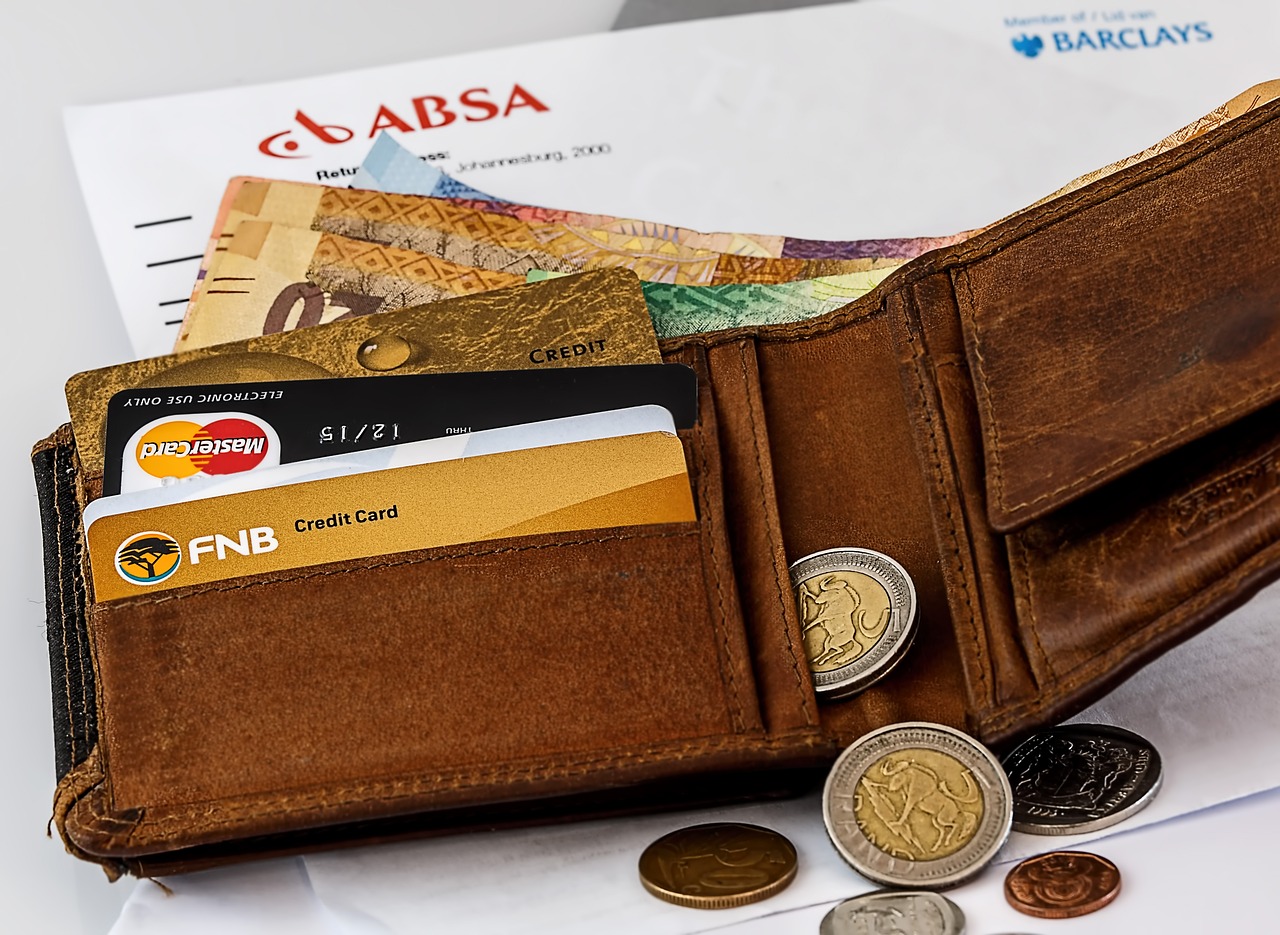
Regular Backups
When it comes to cryptocurrency wallets, one of the most critical aspects that often gets overlooked is the importance of . Imagine losing all your hard-earned digital assets due to a simple oversight, like a computer crash or a corrupted wallet file. It's a nightmare scenario that no investor wants to face! Therefore, creating backups of your wallet data is not just a good practice; it’s an absolute necessity.
Backing up your wallet ensures that you can recover your funds in case of unexpected events. Whether you’re using a hardware wallet, software wallet, or even a paper wallet, having a backup allows you to restore your access to your cryptocurrencies. The process might seem tedious, but think of it as an insurance policy—something you hope never to use but are incredibly grateful for when the time comes.
So, how do you go about creating these backups? Here are some essential methods to consider:
- Exporting Private Keys: Most wallets allow you to export your private keys. This is a crucial step, as these keys are what give you access to your funds. Store these keys in a secure location, such as an encrypted USB drive.
- Seed Phrases: Many wallets provide a seed phrase—a series of words that can restore your wallet. Write this down and keep it in a safe place, separate from your wallet.
- Cloud Backups: If you’re using a software wallet, consider using a secure cloud service to store your backup files. Just ensure that you use strong encryption and two-factor authentication for added security.
It’s also vital to regularly update your backups, especially after significant transactions or changes in your wallet. Just like a garden, your backup needs regular pruning and care to ensure it remains healthy and functional. Setting a reminder to back up your wallet monthly can be a simple yet effective way to stay on top of this task.
Furthermore, consider creating multiple copies of your backups and storing them in different locations. This way, if one backup is compromised or lost, you still have other options available. Just remember: the more secure your backup process, the less stress you’ll face in the future.
In conclusion, regular backups are a fundamental part of managing your cryptocurrency investments. They not only provide peace of mind but also safeguard your financial future. Think of it as a safety net that will catch you when you fall, allowing you to focus on what really matters—growing your investment portfolio without the constant fear of loss.
Q: How often should I back up my cryptocurrency wallet?
A: It's advisable to back up your wallet every time you make a significant transaction or at least once a month. Regular updates ensure that you have the most recent data saved.
Q: What should I do if I lose my backup?
A: If you lose your backup and you have access to your seed phrase or private keys, you can still recover your wallet. Always keep these critical pieces of information secure.
Q: Can I back up my hardware wallet?
A: Yes, hardware wallets typically allow you to back up your recovery phrase. Make sure to store this phrase in a secure location.
Q: Is it safe to store backups in the cloud?
A: While cloud storage offers convenience, it’s important to use encryption and two-factor authentication to enhance security. Always weigh the risks before storing sensitive information online.
Frequently Asked Questions
- What is a cryptocurrency wallet?
A cryptocurrency wallet is a digital tool that allows you to store, manage, and interact with your cryptocurrencies. Think of it as your online bank account, but instead of dollars, you’re dealing with Bitcoin, Ethereum, and other digital assets. Wallets can be hardware-based, software-based, or even paper-based, each serving a unique purpose in your investment strategy.
- What are the different types of cryptocurrency wallets?
There are mainly three types of cryptocurrency wallets: hardware wallets, software wallets, and paper wallets. Hardware wallets are physical devices that keep your coins offline, offering robust security. Software wallets are applications or online platforms that provide easier access but may be more vulnerable to hacks. Paper wallets are simply printed pieces of paper that contain your keys, offering a unique form of offline storage.
- How do hardware wallets enhance security?
Hardware wallets store your private keys offline, making them much less susceptible to hacking attempts compared to online wallets. They often come with additional security features like PIN codes and recovery phrases, providing peace of mind that your investments are safe from digital threats. It’s like having a safe deposit box for your cryptocurrency!
- Are software wallets safe to use?
While software wallets offer convenience and ease of use, they do come with certain risks. Since they are connected to the internet, they can be vulnerable to malware and phishing attacks. However, many software wallets incorporate security features like encryption and two-factor authentication to bolster their defenses. It’s essential to choose a reputable wallet and stay vigilant.
- What is two-factor authentication (2FA) and why is it important?
Two-factor authentication (2FA) is an extra layer of security that requires not just a password and username but also something only you have on you, like a smartphone app or a text message code. This means that even if someone gets your password, they still can’t access your wallet without that second factor. It’s like having a double lock on your door!
- How often should I back up my wallet?
You should back up your wallet regularly, especially after making significant transactions or changes. Creating a backup ensures that you can recover your funds in case of device loss or failure. It’s a good habit to set a reminder to back up your wallet data every month or after any major updates.
- What should I do if I lose access to my wallet?
If you lose access to your wallet, your first step should be to look for any backup phrases or recovery options you may have set up. Many wallets provide a recovery seed phrase when you first create them, which can help you regain access. If you don’t have any backups, unfortunately, recovering your funds may be impossible. Always remember to keep your recovery information safe!



















